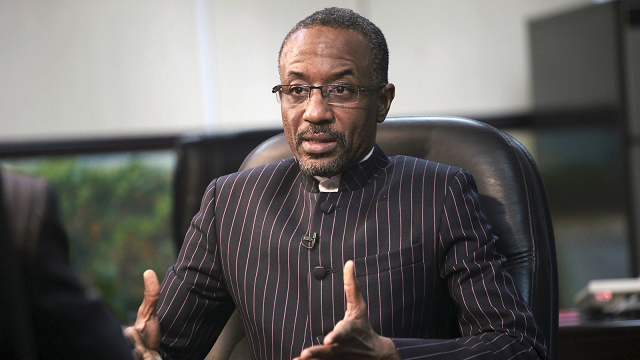The former Governor of the Central Bank of Nigeria (CBN), Muhammadu Sanusi II, has decried the slow pace of progress in the country, adding that 70 percent of the country’s challenges, including insecurity, could be traced to its economy.
Sanusi, who is a former Emir of Kano, said this at a conference in Kaduna, celebrating his 60th birthday anniversary.
He said that the country’s progress had been impeded by various administrations that mismanaged opportunities that were presented when “given the chance to make a change”.
He added that 60 years ago the US government advisory had projected that Nigeria had a “better economic future” than Japan.
He asked, “Today where are we and where is Japan?”
Sanusi said, “So, what I will say briefly in all these 60 years is that my dream in life has always being to remain the same person to live by the values I set for myself, stand by those values and be ready to face the consequences.”
“But if there is anything that I have to share with the younger generation especially that I now consider myself getting old is that the fears that we have are grossly unfounded. As Kingsley said when we started the banking reforms.
“On the eve of the banking reforms, every day, on the front pages of newspapers, the banks CEOs were at the Villa. They were the friends of the President, they were oligarchs, they were untouchables.
“I remember when we started going after the bankers, someone called me and said, you know you are young man, you don’t know what you are doing, you will not succeed. What have we done today? So far, three or four of the wealthiest and powerful bank CEOs in this country have gone to jail and nothing happened.
“You can fight any system, you don’t need a large number. People can have temporary powers to use but the truth will always prevail. So, when I was suspended as CBN Governor, I made a famous statement that you can suspend a man, but you cannot suspend the truth. And this is the truth that has come out.
“As His Eminence, the Sultan of Sokoto said recently, this country has a problem. We cannot ignore the fact that things are not working. When you are in a society that is so abnormal, you cannot afford to be a conformist, because if you all conform things will not change.
“Many years ago, when I was screaming about the billions being spent on fuel subsidy, I remember there was an attempt to arrack my house in Kano, then I was in the CBN. Where are we today? We are made to face reality. That fuel subsidy is unsustainable. Now when the decision is taken, it will be more painful than if they had removed it five or 10 years ago.
“I only speak to the best of my understanding what I see about the country and I have paid the price, but Nigerians are the ones paying the real price. It is the price you see in increased poverty, it is a price you see in insecurity, in a high rate of inflation, in loss of values of our currency, in the numbers around malnutrition, unemployment, out-of-school children, maternal mortality and infant mortality.
“Calling me controversial or calling me an enemy or critic, will not make those facts go away. So, anywhere we go, we must face these facts. Am I happy about it on my 60th birthday? No. Because, 60 years ago when I was born, the United State government advisory was telling investors that Nigeria has a better economic future than Japan.
READ ALSO: Improved Vaccination Will Push Up Nigeria’s GDP Growth, CBN Predicts
“It is not about one or two governments, it is about decades of a people throwing away opportunities and every time we are given a chance to make a change, we go back to the same old things.
“And you know, when I have a platform like this, I have to talk. I have tried not to say much not because there is nothing to say or because I am afraid of speaking. The reason I have not spoken much in the last two years is that I don’t even have to say anything anymore, because all the things we were warning about have come.”
Nigeria’s GDP
He noted that the country’s purchasing power parity continued to witness a retrogression, as the Gross Domestic Product (GDP) per capita in 1980 was $2,180, and in 2019 stood at $2,229 after it saw a 50 percent rise in 2014 to settle at $3,099.
Sanusi said that the country had, within a 40-year period, made no progress, “we made zero progress. 40 years wasted,” he said,
“Between 2014 and 2029, on the basis of this index of the purchasing power of the average income of an average Nigerian, we have wiped out all the progress made in 35 years. We have a responsibility as a people to rise and improve the lives of the people of this country.”
“It is no longer about government, political parties, traditional rulers, Emirs. The days are gone of saying one class of people whether they are Emirs or civil servants cannot talk. When there is a fire, everyone has to go with a bucket of water. We need to understand how our economy works as a people, we need to understand our choices.
“70 percent of our challenges in this country from insecurity to herder/farmer clashes, all have their roots in the economy. Even this shout about restructuring is about economics, it is about resources. We need to grow this economy and make it work for the poor people.
“Since I am wearing two caps as an economist and an Islamic scholar, I need to say that, at the level of the North and Muslims, we need to look hard at ourselves and questions the choices we have made.”













